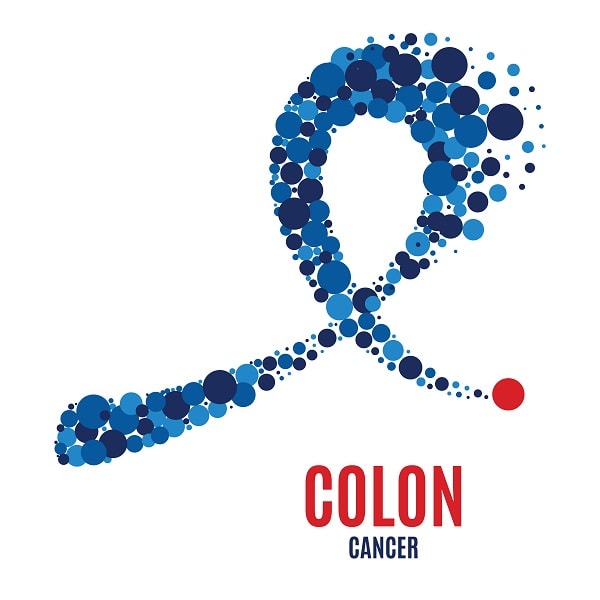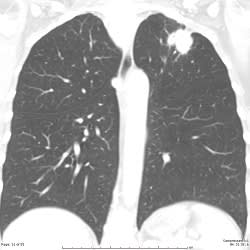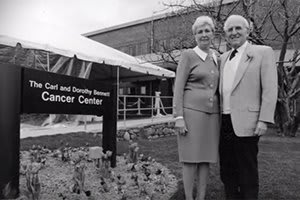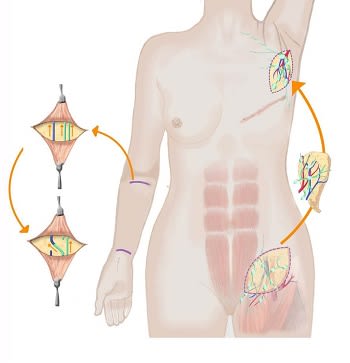New Study Proves Structured Exercise Reduces Cancer Recurrence, Death
Published: August 06, 2025l
While the idea of exercise improving your overall health is certainly not newsworthy, a groundbreaking new study presented at the American Society of Clinical Oncologists examining the role of structured exercise programs in cancer recurrence and mortality certainly is. And, what’s even more encouraging? The strategies studied in it are already in place at Stamford Health’s Carl & Dorothy Bennett Cancer Center – and have been for decades.
The study, which was published in The New England Journal of Medicine, shows the positive effects of post-treatment exercise in improving colon cancer survival and reducing the risk of a future cancer diagnosis.
Researchers randomized participants who had early-stage colon cancer and had completed surgery and chemotherapy into two groups: the control group who was simply advised to exercise; and the other was given the tools, including a trainer and access to a gym, to follow a personalized regimen. After nearly eight years, the group with a formalized program had 30% fewer recurrences of cancer and a nearly 40% lower risk of death.
The study is rather remarkable because colon cancer has a high recurrence rate of about 30%, and, once it comes back, can be harder to treat. While current guidelines suggest a post-treatment lifestyle of a healthy diet and exercise, this study looked at what happens to the patients if they’re given specific instructions and supervision for exercise rather than a general suggestion.
The findings solidify what we at Stamford Health have put into practice for 25 years through our supportive care programs. Following chemotherapy, early-stage cancer patients of the Bennett Cancer Center are given access to our on-site fitness center along with a personal trainer.
When we began the program, we didn’t know that it would help with cancer recurrence. We did know that exercise is good for a patient’s overall health, however. And because a lot of our patients were overweight and sedentary, we would cure their cancer, but they would come to us a few years later with life-threatening issues like heart attack or stroke.
Instead of waiting for them to develop potentially fatal medical problems, we decided to add a fitness program onto their cancer regimen. By doing that, we’re able to seize the opportunity when a patient is dedicated to positive change and health improvements.
We’ve seen that even when the free-of-charge program ends, many patients continue with their preferred physical activity. We’ve helped them become more comfortable with exercise, whether it’s going to the gym, biking, or swimming.
I explain to my patients that the exercise program is part of their treatment and that we should approach those gym sessions with the same adherence as chemotherapy appointments. While exercise has long been known to help reduce the risk of developing cancer, especially colon and breast cancers, the exact reason isn’t understood. It likely has to do with the benefits of reduced inflammation and increased immunity. And, with this new study, we know that movement isn’t enough.
Patients benefit tremendously from a formal program just like the one that we have perfected here at Stamford Health. It validates all the hard work from everyone that’s been involved in the program – especially the trainers. Sure, the doctors emphasize the importance of the program and the hospital’s various fundraisers remove the cost barrier, but our fitness specialists really know how to motivate the patients and make a huge difference in their lives.
It’s my hope that other cancer centers around the country will adopt something like our program so that it becomes standard of care everywhere.
The study, which was published in The New England Journal of Medicine, shows the positive effects of post-treatment exercise in improving colon cancer survival and reducing the risk of a future cancer diagnosis.
Researchers randomized participants who had early-stage colon cancer and had completed surgery and chemotherapy into two groups: the control group who was simply advised to exercise; and the other was given the tools, including a trainer and access to a gym, to follow a personalized regimen. After nearly eight years, the group with a formalized program had 30% fewer recurrences of cancer and a nearly 40% lower risk of death.
The study is rather remarkable because colon cancer has a high recurrence rate of about 30%, and, once it comes back, can be harder to treat. While current guidelines suggest a post-treatment lifestyle of a healthy diet and exercise, this study looked at what happens to the patients if they’re given specific instructions and supervision for exercise rather than a general suggestion.
The findings solidify what we at Stamford Health have put into practice for 25 years through our supportive care programs. Following chemotherapy, early-stage cancer patients of the Bennett Cancer Center are given access to our on-site fitness center along with a personal trainer.
When we began the program, we didn’t know that it would help with cancer recurrence. We did know that exercise is good for a patient’s overall health, however. And because a lot of our patients were overweight and sedentary, we would cure their cancer, but they would come to us a few years later with life-threatening issues like heart attack or stroke.
Instead of waiting for them to develop potentially fatal medical problems, we decided to add a fitness program onto their cancer regimen. By doing that, we’re able to seize the opportunity when a patient is dedicated to positive change and health improvements.
We’ve seen that even when the free-of-charge program ends, many patients continue with their preferred physical activity. We’ve helped them become more comfortable with exercise, whether it’s going to the gym, biking, or swimming.
I explain to my patients that the exercise program is part of their treatment and that we should approach those gym sessions with the same adherence as chemotherapy appointments. While exercise has long been known to help reduce the risk of developing cancer, especially colon and breast cancers, the exact reason isn’t understood. It likely has to do with the benefits of reduced inflammation and increased immunity. And, with this new study, we know that movement isn’t enough.
Patients benefit tremendously from a formal program just like the one that we have perfected here at Stamford Health. It validates all the hard work from everyone that’s been involved in the program – especially the trainers. Sure, the doctors emphasize the importance of the program and the hospital’s various fundraisers remove the cost barrier, but our fitness specialists really know how to motivate the patients and make a huge difference in their lives.
It’s my hope that other cancer centers around the country will adopt something like our program so that it becomes standard of care everywhere.
Featured Expert/ Author















































































































)


)

)
)























